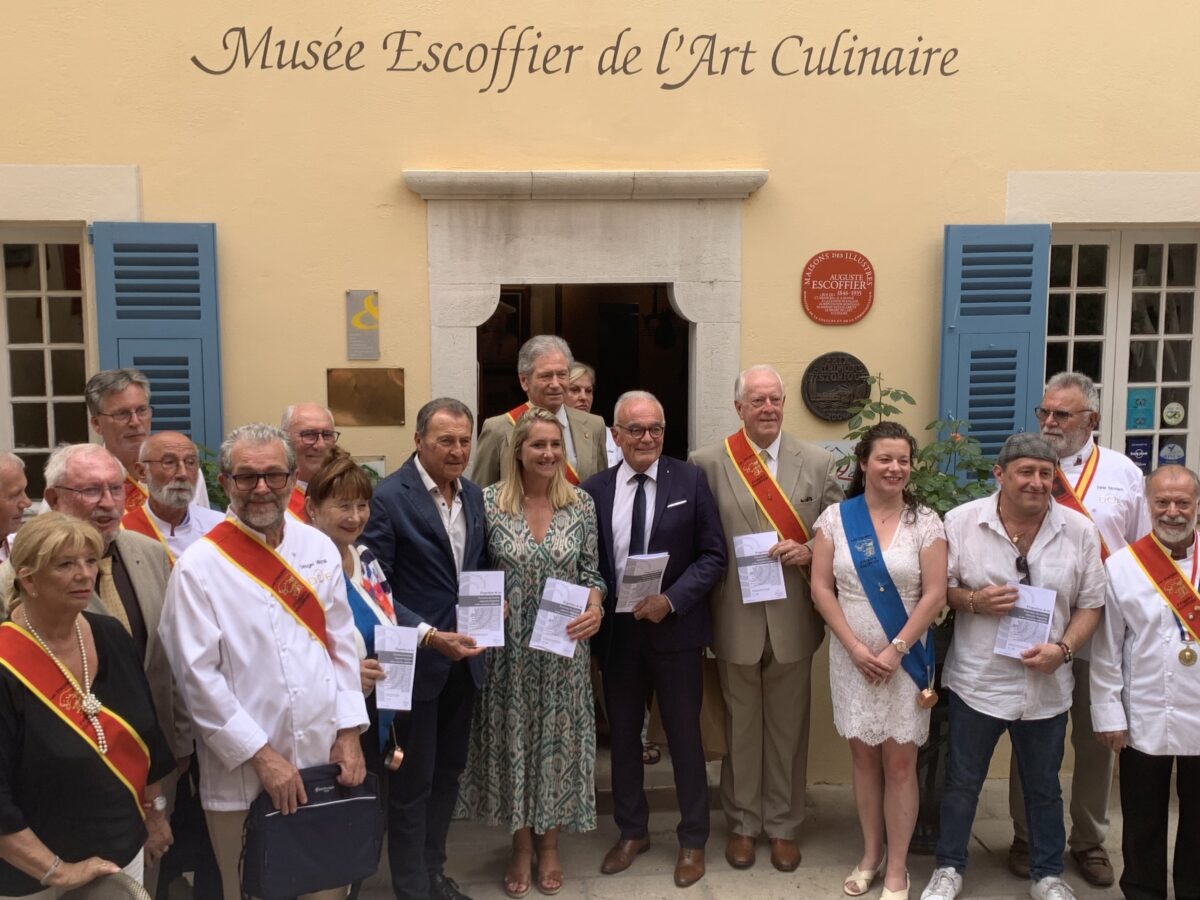The senator from Alpes-Maritimes, Alexandra Borchio Fontimp, presented her bill aimed at protecting Niçoise cuisine and all French regional recipes on June 22, in the courtyard of the Escoffier Museum of Culinary Art in Villeneuve-Loubet.
Will pissaladière, pan bagnat, and Niçoise salad soon be protected by French law? This is what LR Senator Alexandra Borchio Fontimp is striving for with her creation of this bill. The project aims to protect all recipes from the departments and regions of France. Additionally, another crucial aspect of the text would allow new culinary creations to be patented, just like a piece of music, a film, or a work of art.
French cuisine is already recognized as an intangible cultural heritage of humanity by UNESCO. But according to the mayor of Mougins, Richard Galy, “It needs to be consolidated and protected.” The bill was submitted to the Senate on April 6, 2023, co-signed by 55 senators. The next step would be its inclusion on the agenda. The text, a result of nearly a year’s work, is “primarily persuasive” and was drafted in collaboration with lawyer Timothée Frinans-Ozanne, president of the Toqualoi association.
“Even back then, he wasn’t very pleased that a culinary creation couldn’t be protected,” recounts Michel Escoffier, referring to his great-grandfather, the iconic chef Auguste Escoffier. Today, it’s a debate that still enrages defenders of traditional cuisine. It’s the Niçoise salad “that looks nothing like it” by starred chef Philippe Etchebest, published on Cuisine Az, that recently outraged Franck Viano, head of the Collectif Cuisine Niçoise and ambassador of Côte d’Azur France. This is why he supports this bill.
For the Respect of French Culinary Art
“We all have memories of delicious little dishes, especially from our grandmothers, the smell of pissaladière coming out of the oven, the crunch of Niçoise stuffed vegetables or the memory of a pan bagnat shared on a beach along our coast,” the senator shares. It’s because behind this attachment to regional recipes lies transmission and mentorship that she wishes for these skills to be respected.
In this sense, this bill is a means to target certain food industry players who “bypass and distort” “popular dishes from our country.” Practices which, according to her, would distort and betray France’s identity and its heritage.
Cataloging Recipes, Copyrights, “French Regional Recipe” Mention, an Armada of Protection
Symbolically gathered in the courtyard of the Escoffier Museum of Culinary Arts in Villeneuve-Loubet, the project investigators detail its content. Aiming to protect French culture, it plans to set up a directory of French regional recipes after a survey. They will then “be published notably in the Official Industrial Property Bulletin,” explains Timothée Frinans-Ozanne.
“Like the protected designation of origin mention,” it aims to set up a “French Regional Recipe” mention with the creation of a logo. A guarantee from restaurateurs and the industry of proper adherence to recipes for customers and consumers. Finally, the text proposes to design a culinary creation certificate “similar to a patent in the entrepreneurial field.” Only new recipes could be registered, and their creators would hold industrial property rights.
The senator clarifies that the solutions she proposes are part of the guarantee of the sustainability of regional recipes and not in sanctioning cooking enthusiasts. “It aims to discourage certain food industry players who divert the original composition of a dish to the detriment of the consumer,” she clarifies.
Non-compliance with the rules would come with penalties. And their observance, hopes Alexandra Borchio Fontimp, would benefit gastronomic tourism and encourage “culinary innovation.”


